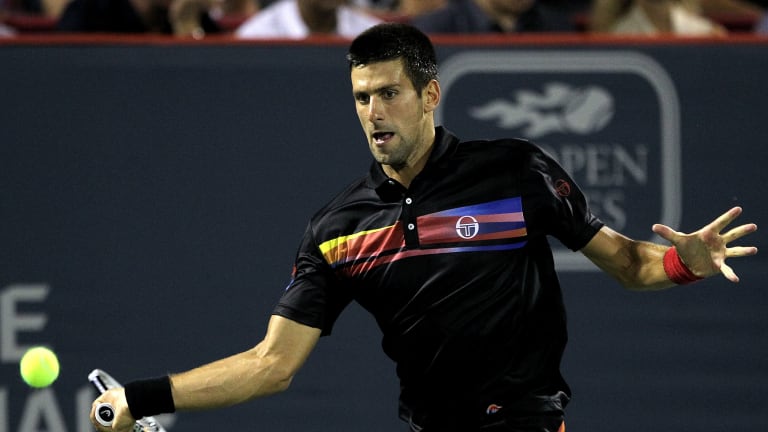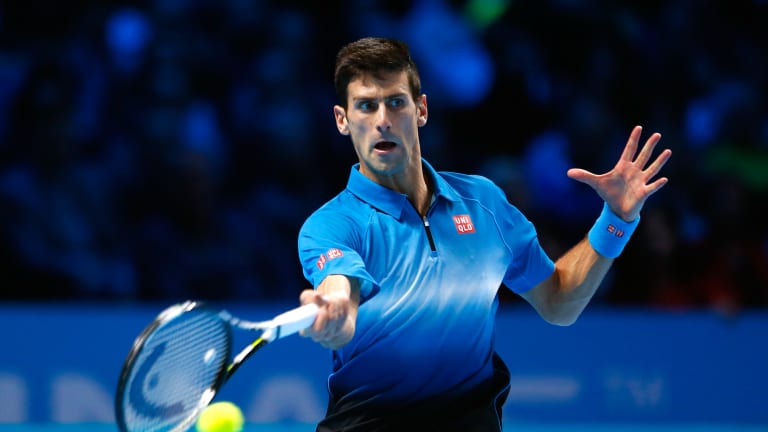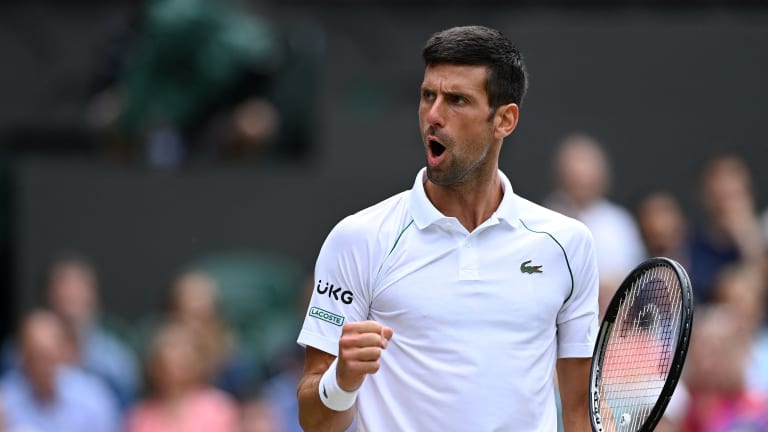Wimbledon
Two wins from a historic Wimbledon title, Novak Djokovic's 2021 has 2011 and 2015 vibes. How do the Serb's superb seasons compare?
By Jul 07, 2021Wimbledon
Darren Cahill: Jannik Sinner watches more Carlos Alcaraz matches than he does with any other player
By Jul 14, 2025Wimbledon
Jannik Sinner reignites Carlos Alcaraz rivalry with Wimbledon victory
By Jul 14, 2025Wimbledon
Jannik Sinner reversed his usual pattern against Carlos Alcaraz. It won him Wimbledon
By Jul 14, 2025Wimbledon
Veronika Kudermetova and Elise Mertens win women's doubles title at Wimbledon
By Jul 13, 2025Wimbledon
Joy to the World: What Carlos Alcaraz has, and what we are enjoying
By Jul 13, 2025Wimbledon
Iga Swiatek keeps surprising herself after Wimbledon title caps "surreal" turnaround on grass
By Jul 12, 2025Wimbledon
Iga Swiatek wins first Wimbledon, sixth Grand Slam title with 6-0, 6-0 rout of Amanda Anisimova
By Jul 12, 2025Wimbledon
Wimbledon men's final preview: Will Carlos Alcaraz, Jannik Sinner share another epic?
By Jul 12, 2025Wimbledon
Julian Cash, Lloyd Glasspool become first all-British pair to win Wimbledon men's doubles title since 1936
By Jul 12, 2025Two wins from a historic Wimbledon title, Novak Djokovic's 2021 has 2011 and 2015 vibes. How do the Serb's superb seasons compare?
It depends whether you value quantity or quality.
Published Jul 07, 2021
Advertising
Advertising

Djokovic, in Sergio Tacchini, at the Rogers Cup in 2011.
© 2011 Getty Images
Advertising

Djokovic, in Uniqlo, at the ATP Finals in 2015.
© 2015 Getty Images
Advertising
Advertising
Advertising

Djokovic, in Lacoste, at Wimbledon in 2021.
© AFP via Getty Images